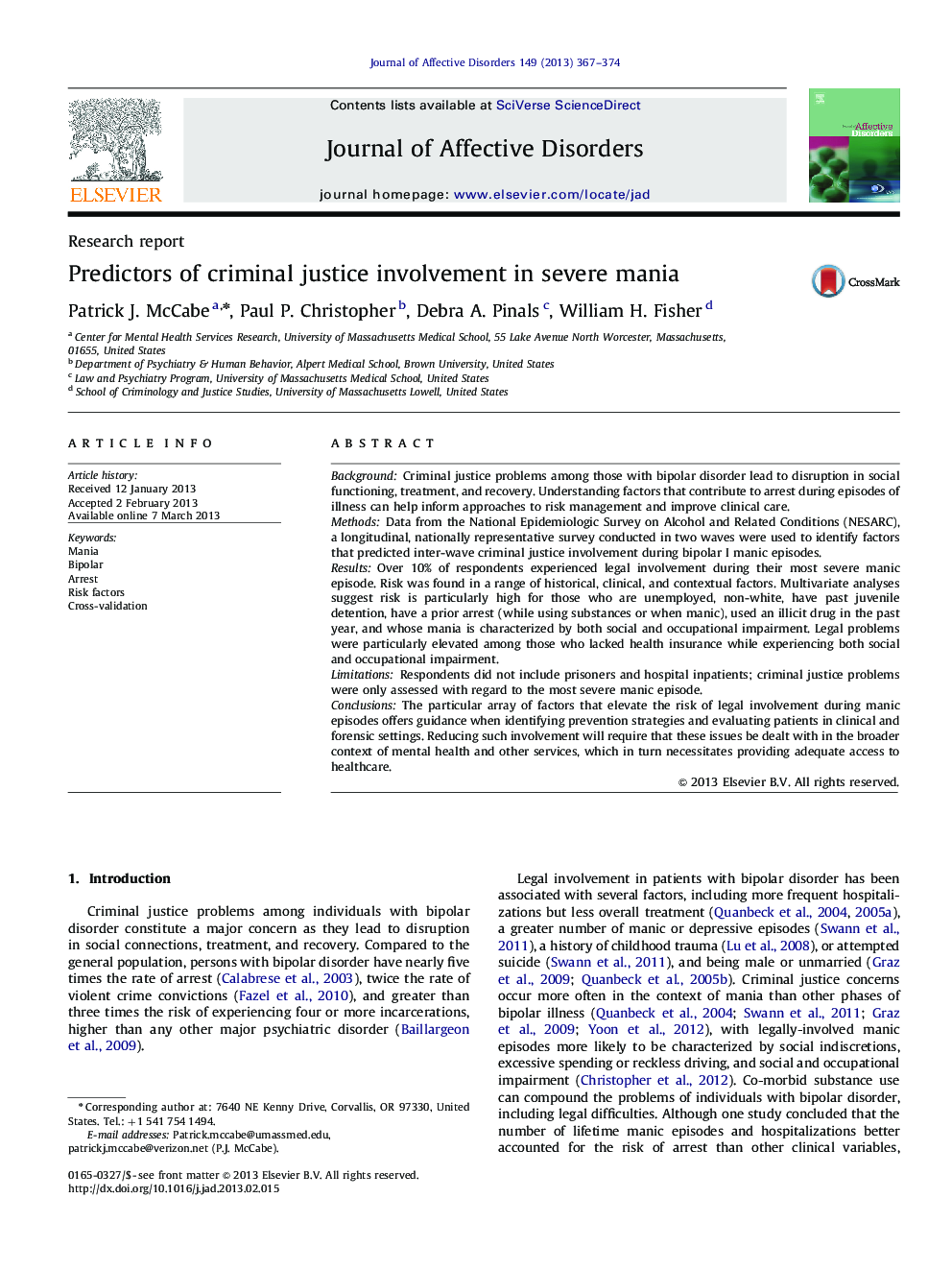| Article ID | Journal | Published Year | Pages | File Type |
|---|---|---|---|---|
| 6234688 | Journal of Affective Disorders | 2013 | 8 Pages |
BackgroundCriminal justice problems among those with bipolar disorder lead to disruption in social functioning, treatment, and recovery. Understanding factors that contribute to arrest during episodes of illness can help inform approaches to risk management and improve clinical care.MethodsData from the National Epidemiologic Survey on Alcohol and Related Conditions (NESARC), a longitudinal, nationally representative survey conducted in two waves were used to identify factors that predicted inter-wave criminal justice involvement during bipolar I manic episodes.ResultsOver 10% of respondents experienced legal involvement during their most severe manic episode. Risk was found in a range of historical, clinical, and contextual factors. Multivariate analyses suggest risk is particularly high for those who are unemployed, non-white, have past juvenile detention, have a prior arrest (while using substances or when manic), used an illicit drug in the past year, and whose mania is characterized by both social and occupational impairment. Legal problems were particularly elevated among those who lacked health insurance while experiencing both social and occupational impairment.LimitationsRespondents did not include prisoners and hospital inpatients; criminal justice problems were only assessed with regard to the most severe manic episode.ConclusionsThe particular array of factors that elevate the risk of legal involvement during manic episodes offers guidance when identifying prevention strategies and evaluating patients in clinical and forensic settings. Reducing such involvement will require that these issues be dealt with in the broader context of mental health and other services, which in turn necessitates providing adequate access to healthcare.
